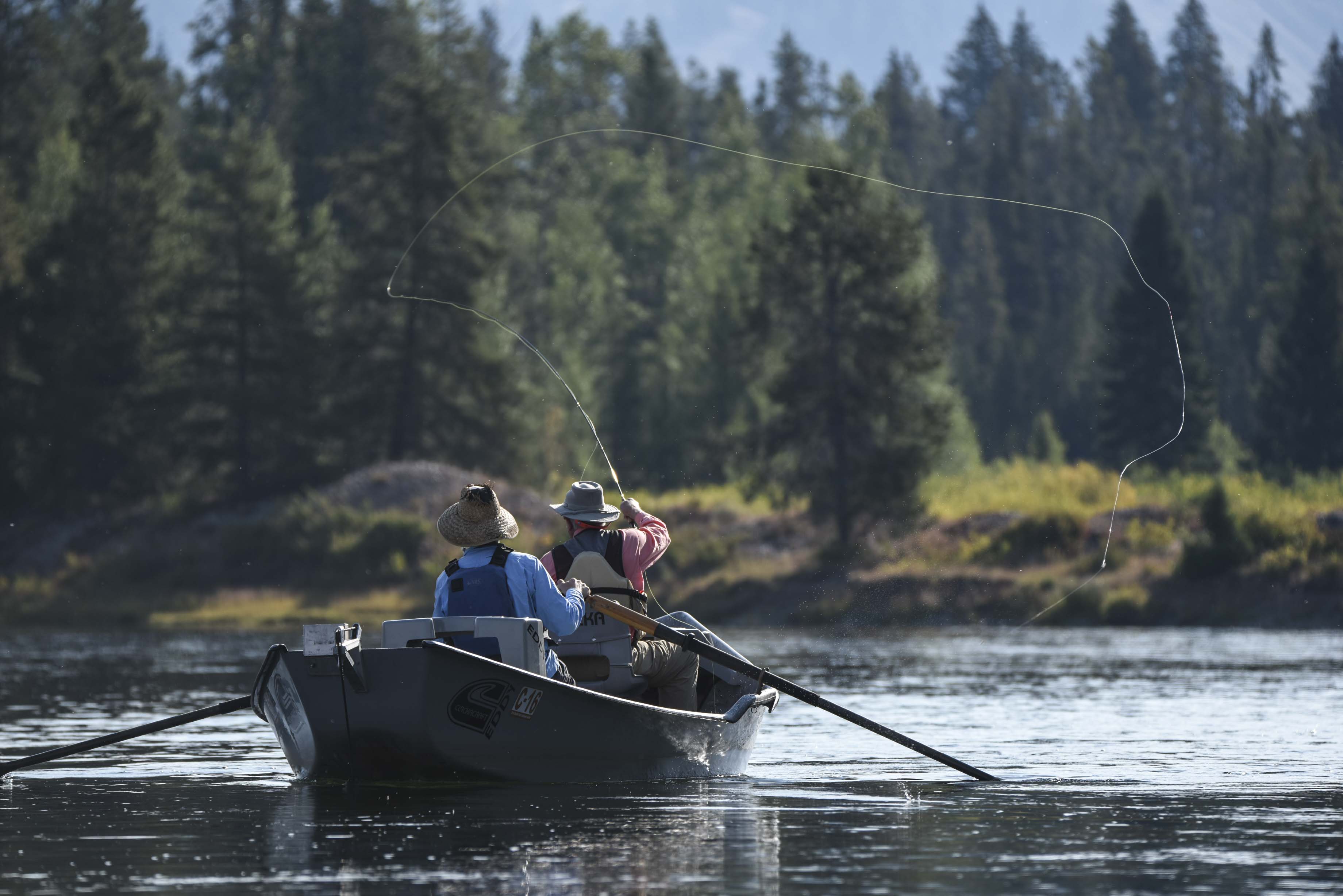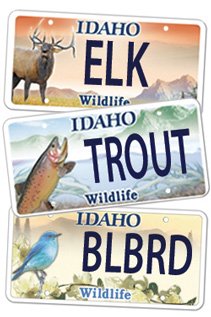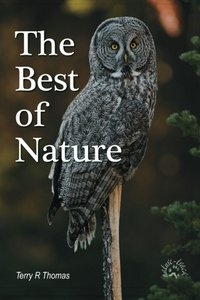Natural Therapy

Time spent fishing may actually increase the length of your life and provide you with better health, studies are finding. This new research is demonstrating what most of us already know at some level: exposure to the things of nature has therapeutic value and is something that humans crave, even though we might not realize it.
Burns Creek set a steady cadence as water tumbled into the head of the pool and flowed softly out the bottom. Cottonwoods arched above, a blush of yellow hinting at autumn as sun filtered through the leaves, and dogwoods lined the banks. I stood, then sat on the banks and watched the water endlessly wash by, gurgling softly and reassuringly that all was well. I wasn’t there to fish or hunt or to even scoop up a drink. I just wanted to think about the recent past and the near future. I find I think well in the woods, and moving water acts like a catalyst.
I thought about a new book I am listening to by Florence Williams called, The Nature Fix. It’s subtitle, Why Nature Makes Us Happier, Healthier and More Creative, indicates that this is about nature fixing us, not us fixing nature. It is not a new concept; many ancient religions have advocated for strong ties to nature as a way to be more completely human. One hundred and seventy years ago, Florence Nightingale recognized the role of sunshine in helping her Crimean War casualties to heal. Even kindergarten was originally conceived to get small children outdoors because of physical and mental development benefits.
Until recently though, the scientific evidence that immersion in nature has real health benefits has always been apocryphal or at least not well substantiated. There were always plenty of other ways to explain away an observation of the phenomenon of nature healing or boosting mental and physical health. For instance, when people get out into nature, they tend to get more exercise and there are measurable health benefits. Which caused the improved health, nature or exercise? Is there truly a power in getting away from a busy urban life into nature, or is it really just the change of pace that brings stress relief? These are often very difficult to tease apart.
Early attempts to quantify the value of nature often fell into the trap of correlation. Things that are correlated may rise or fall together, but proving that one caused the other was elusive. As equipment and techniques have improved though, researchers have been able to better isolate cause and effect through the use of brain wave mapping, energy levels and other scientific measurements impossible just a handful of years ago. In addition, researchers interested in the therapeutic effects of nature have recognized the weaknesses of previous study designs and have been devising clever tests that can pass scientific scrutiny. In short, nature therapy research has emerged from the voodoo era into real science.
Nature therapy isn’t really about natural cures, holistic medicines, aroma therapy, herbal teas or other natural substances used by some people. We know that there are products in nature that have healing properties. After all, aspirin is a derivative of willow bark. Rather, this is about the restorative value of just being connected to nature, by just being IN nature.
Richard Louv’s chilling book, Last Child in the Woods, documented how children have lost touch with nature in just a generation. His book reported the dire consequences of that broken connection in a child’s development. William’s book takes it a step further, but comes from the other side, showing the importance of a “green connection” not just to children, but to all humans, young to old.
After listening to, The Nature Fix, I am starting to think that the old saw, time spent fishing is not subtracted from one’s life, is not so far-fetched after all.
Help Idaho Wildlife
When we traveled across the state in October 2017, most of the vehicles we saw using the wildlife management areas did not have wildlife plates. Buying wildlife plates is a great way for non-hunters and hunters alike to support wildlife-based recreation like birding.
C'mon folks, let's help Idaho's wildlife by proudly buying and displaying a wildlife license plate on each of our vehicles!
See below for information on Idaho plates. Most states have wildlife plates so if you live outside Idaho, check with your state's wildlife department or vehicle licensing division for availability of state wildlife plates where you live.
And tell them that you heard about it from Nature-track.com!

Wildlife License Plates
Great news! as of 2024, there are three NEW designs for license plates. They still are bluebird, cutthroat trout and elk, but they are beautiful.
Idaho Wildlife license plates provide essential funding that benefits the great diversity of native plants and wildlife that are not hunted, fished or trapped—over 10,000 species or 98% of Idaho’s species diversity. Game species that share the same habitats (such as elk, deer, antelope, sage-grouse, salmon, trout) also benefit from these specialty plates.
No state tax dollars are provided for wildlife diversity, conservation education and recreation programs. Neither are any revenues from the sale of hunting or fishing licenses spent on nongame species. Instead, these species depend on direct donations, federal grants, fundraising initiatives—and the Idaho Wildlife license plates.
Both my vehicles have Bluebird Plates. I prefer the bluebird because the nongame program gets 70 percent of the money from bluebird plates, but only 60 percent of the money from elk and trout plates - 10 percent of the money from elk plates supports wildlife disease monitoring and testing programs (to benefit the livestock industry) and 10 percent from cutthroat plates supports non-motorized boat access.
Incidentally, in 2014, the Idaho Legislature denied the Department of Fish and Game the ability to add new plates or even to change the name of the elk and cutthroat plates (very specific) to wildlife and fish plates, a move that would have allowed for changing images occasionally and generating more revenue. It would seem that they believe that we Idahoans don't want a well funded wildlife program.
I think it is time we let the Legislature know that Idahoan support wildlife funding and that we would like to see these generic plates come to fruition.

"WOW. What a phenomenal piece you wrote. You are amazing." Jennifer Jackson
That is embarrassing, but actually a fairly typical response to my nature essays. Since The Best of Nature is created from the very best of 16 years of these nature essays published weekly in the Idaho Falls Post Register (online readership 70,000), it is a fine read. It covers a wide variety of topics including humorous glimpses of nature, philosophy, natural history, and conservation. Readers praise the style, breadth of subject matter and my ability to communicate complex and emotional topics in a relaxed and understandable manner.
Everyone can find something to love in this book. From teenagers to octogenarians, from the coffee shop to the school room, these nature essays are widely read and enjoyed.
Some of the essays here are my personal favorites, others seemed to strike a chord with readers. Most have an important message or lesson that will resonate with you. They are written with a goal to simultaneously entertain and educate about the wonderful workings of nature. Some will make you laugh out loud and others will bring a tear to the eye and warm your heart.
Readers Write:
"You hit a home run with your article on, Big Questions in Nature. It should be required reading for everyone who has lost touch with nature...great job!" Joe Chapman
"We enjoyed your column, Bloom Where Planted. Some of the best writing yet. The Post Register is fortunate to have your weekly columns." Lou Griffin.
To read more and to order a copy, click here or get the Kindle version
Copies are also available at:
Post Register
Island Park Builders Supply (upstairs)
Barnes and Noble in Idaho Falls
Harriman State Park, Island Park
Museum of Idaho
Valley Books, Jackson Wyoming
Avocet Corner Bookstore, Bear River National Wildlife Refuge, Brigham City, Utah
Craters of the Moon National Monument Bookstore, Arco, Idaho